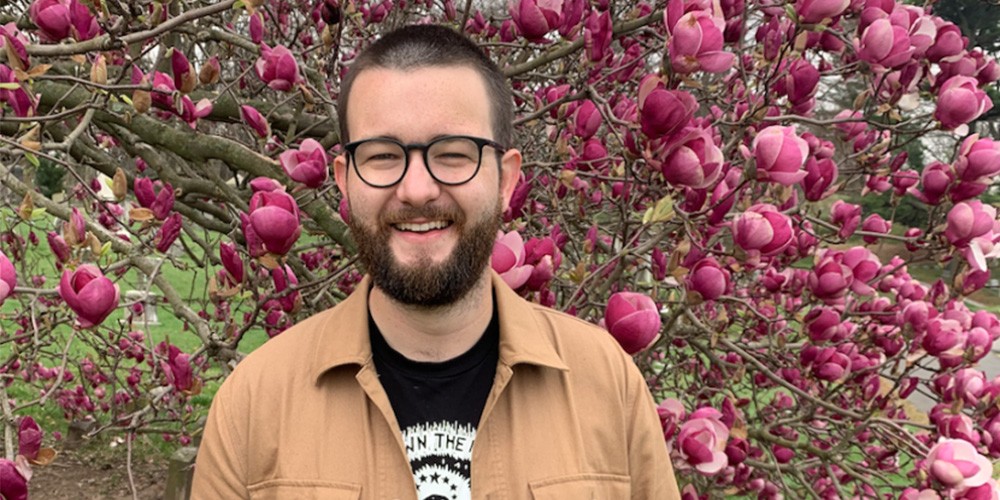Alumni Spotlight: Andy Boyd ‘18
Alumni Spotlights is a place to hear from the School of the Arts alumni community about their journeys as artists and creators.
Andy Boyd '18 is a playwright and songwriter based in Sunset Park, Brooklyn. He is a graduate of the playwriting MFA at Columbia University, where he studied with David Henry Hwang, Lynn Nottage, Charles Mee, Kelly Stuart, and Doug Wright. His plays have been produced by The Tank, Otherworld Theatre, Theater in Asylum, Naked Theatre Company, and IRT Theater. His plays Occupy Prescott and The Trade Federation, or, Let's Explore Globalization Through the Star Wars Prequels are published by NoPassport Press. His chapbook of short plays Lil' Sweetums is published by Bottlecap Press. He is a member of the theatre band Friend of Friend.
Was there a specific faculty member or peer who especially inspired you while at the School of the Arts? If so, who and how?
There were so many faculty members who inspired me, but one who particularly did so was Lynn Nottage. Many people know that Lynn is one of the greatest living playwrights. A smaller (though still quite large!) group know that Lynn is one of the great teachers of playwriting. Lynn set the bar very high on the first day of class. She had us fill out a questionnaire about our work. One question was "Who are five living philosophers that influence your work?", which I think inspired more than a few of us to read more philosophy! But the question I carry with me like an amulet was "Does your work tell the truth?" At the time I thought of playwriting as a clash of competing truths, different perspectives presented without comment or judgement, allowing the audience to sort out their own opinion. But this question challenged me. THE truth? As Pontius Pilate says, "Truth? What is that?" But one rarely wants to be on the side of Pontius Pilate. Lynn inspired me to figure out what truth I wanted to communicate. She pushed me to take braver stands as a playwright. While still giving space to perspectives that were not my own, I could still make clear what I believed. I write a lot of historical work, and telling the truth doesn't have to mean getting every fact right. This is art, after all. But it does mean that in some deeper way I must write something that tells the truth about being a human being.
What were the most pressing social/political issues on the minds of the students when you were here?
I was on the University Senate. I ran on a platform of supporting student unionization efforts and the BDS movement in support of Palestinian rights. I won partially because of the strength of my platform but mostly because nobody else ran. While I was on the Senate, one resolution kept coming up in every meeting and being soundly defeated. It was a resolution in favor of free speech. We were never able to define the exact boundaries of free speech on campus. Did it include advocating violence? Did it include slurs? Did it include protests designed to prevent others from speaking? The repeated efforts to pass a resolution were both dispiriting and kind of funny. A group of one hundred or so renowned and accomplished students and academics can't agree on something so simple? But maybe especially such a group would have a hard time drafting a statement like this. At the time it seemed the most important debates were about the parameters of debate itself. We failed to define these, and Columbia is worse off because of our failure.
What advice would you give to recent graduates?
I used to think that success meant having a play at a major theatre before I turned thirty. Then I realized that such timelines were silly, and that the best way to achieve success was to stay the course, writing new plays and getting them produced at whatever scale available at the time. Then I realized that staying the course WAS success. If you're making your art and sharing it with an audience, however small, you are doing the thing. You are a blade of grass in the ecosystem of culture.
